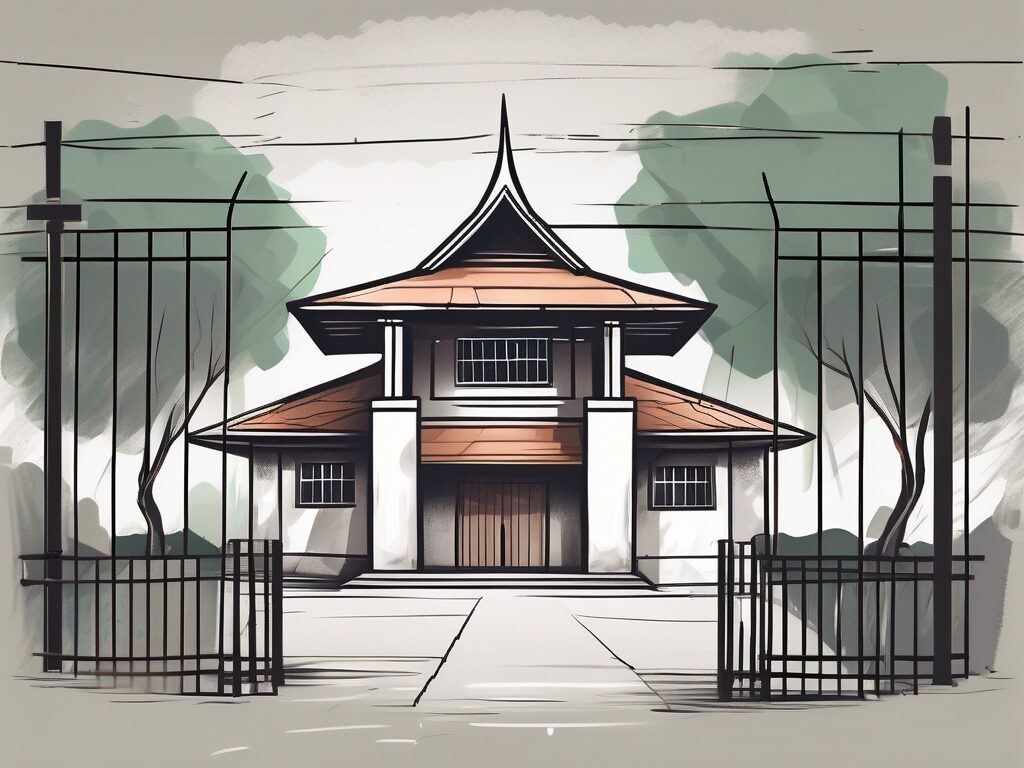The pursuit of a Master’s degree in Education is a commendable endeavour, one that can open doors to a myriad of opportunities. However, in Thailand, like many other developing countries, there are significant barriers that can hinder this pursuit. In this comprehensive exploration, we will delve into the four main challenges that individuals face when pursuing a Master’s in Education in Thailand.
1. Financial Constraints
The first and perhaps most significant barrier is financial constraints. The cost of higher education, particularly at the Master’s level, can be prohibitive for many individuals. This is especially true in Thailand, where the average income is considerably lower than in more developed countries.
Moreover, the availability of scholarships and grants that can help offset these costs is limited. While there are some opportunities available, the competition for these funds is fierce, making it difficult for many to secure the necessary financial assistance.
It’s a bit like trying to secure a seat at a popular concert. With limited tickets and a high demand, not everyone who wants to attend will be able to. Similarly, the limited scholarships and high demand mean not everyone who desires to pursue a Master’s in Education can afford to.
Comparisons with Other Countries
When compared to countries like the United States or the United Kingdom, the cost of education in Thailand may seem relatively low. However, when you factor in the average income of Thai citizens, the cost becomes a significant burden. It’s akin to comparing apples and oranges – the financial realities are simply different.
2. Limited Access to Quality Institutions
The second challenge is the limited access to quality educational institutions. While Thailand has made significant strides in improving its education system, there are still gaps in terms of quality and access.
Many of the top universities are located in urban areas, making it difficult for those in rural areas to access these institutions. Additionally, the quality of education offered can vary greatly from one institution to another, with some providing world-class education while others fall short.
Imagine trying to find a needle in a haystack. That’s what it can feel like for individuals in rural areas trying to access quality education. The opportunities are there, but they are few and far between, making the pursuit of a Master’s degree a challenging endeavour.
Comparisons with Other Countries
In comparison to countries like Japan or South Korea, where high-quality educational institutions are more evenly distributed across the country, Thailand still has a long way to go. It’s like comparing a well-stocked supermarket to a small corner shop – the range and quality of options simply don’t compare.
3. Socio-Cultural Barriers
The third challenge is socio-cultural barriers. In Thailand, like many other Asian countries, there is a strong emphasis on traditional roles and expectations. This can create barriers for individuals, particularly women, who wish to pursue higher education.
For example, women may face pressure to marry and start a family rather than pursue a Master’s degree. Additionally, the expectation that individuals should contribute to their family’s income can also deter people from pursuing higher education, as it often means taking time away from work.
It’s a bit like being caught between a rock and a hard place. On one hand, there’s the desire to pursue higher education and improve one’s prospects. On the other hand, there’s the pressure to conform to societal expectations and fulfill traditional roles.
Comparisons with Other Countries
Compared to countries like Sweden or Canada, where there is a greater emphasis on individual choice and gender equality, the socio-cultural barriers in Thailand can seem particularly daunting. It’s like comparing a mountain to a molehill – the challenges are significantly greater.
4. Language Barriers
The fourth and final challenge is language barriers. While English is widely taught in Thai schools, proficiency levels can vary greatly. This can create a significant barrier for those wishing to pursue a Master’s degree, as many of the programmes are taught in English.
Imagine trying to read a book in a language you’re not fully comfortable with. That’s what it can feel like for Thai students trying to pursue a Master’s degree in English. The language barrier can make it difficult to fully understand and engage with the material, hindering their educational progress.
Comparisons with Other Countries
Compared to countries like the Netherlands or Norway, where English proficiency is exceptionally high, the language barrier in Thailand can be a significant hurdle. It’s like trying to jump over a high wall versus a small step – the challenge is considerably greater.
In conclusion, while the pursuit of a Master’s degree in Education in Thailand can be a rewarding endeavour, it is not without its challenges. From financial constraints to limited access to quality institutions, socio-cultural barriers, and language barriers, there are numerous hurdles that individuals must overcome. However, with determination and the right support, these barriers can be surmounted, paving the way for a brighter educational future.
Overcome Educational Barriers with The IQTS at UWE
Understanding the challenges of pursuing a Master’s in Education in Thailand is just the beginning. If you’re ready to enhance your professional development and overcome the hurdles of strict qualification requirements, limited career progression, professional isolation, and the need for a deeper understanding of global education systems, The IQTS at UWE has the solution. Our International Qualified Teacher Status (iQTS) Programme is specifically designed to support educators like you. With the iQTS, you can expect a significant increase in interview callbacks, promotion rates, and salary, as well as expanded professional connections and adaptability to international curricula. Don’t let barriers hold you back. Make Your Next Step with the iQTS programme and join a community of educators who are transforming their careers.

